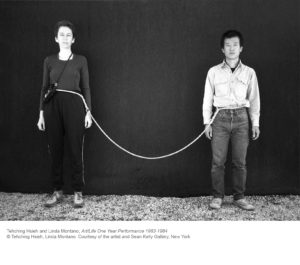How do we define the term ‘end-of-life’? As a medico-legal category? Or a euphemism in death-phobic western industrial societies? What sort of death does this term most commonly describe?
Why then are some end-of-life narratives, specifically cancer narratives, so emotionally compelling? What is at stake in attempting to thoroughly understand their cultural power?
Such accounts are embedded in cultural beliefs that health crises, illness and death are universal experiences that should and do have a democratising impact, beyond socio-economic, political and racial difference. In a time conceptualised as a crisis in healthcare, where discourses of resource scarcity abound, it seems particularly important to attend to enclaves in which scarcity and lack have been routinely encountered and yet in which people find different ways to go on living and dying. This project recognises that those living lives we currently conceptualise as deathly and unthinkable have always been among us, concealed by and yet supporting dominant narratives of dying.
Out of time examines experiences of the end-of-life in the contemporary period, and begins with narrative form, specifically the genres of life writing and memoir. In the Medical Humanities tradition, narrative has been established as a form which can compel people to care more about universal experiences of illness and suffering. An emerging Critical Medical Humanities challenges such assumptions, exposing the occlusions and failures of this form, turning away from linear narrative and memetic realism towards poetry and abstraction in cultural forms, modes which offer themselves as modes of holding or conveying experiences of rupture. These narratives disrupt and give us critical purchase on a canon of illness narratives that privilege forms of death outside of normative temporality and normative embodiment. Indebted to and building upon formulations of fugitivity originating within Black studies, this project develops the concept of fugitive care, the ever-shifting offers and practices of care that exceed institutions of science, medicine and policing.
Thinking with Elizabeth Freeman’s engagement and challenge to the notion of “chronobiopolitics” the project reflects on how queer theory more broadly offers useful critical tools to explore dying that is conscious of a fraught relation to the linear progression of the life course. The first chapter considers the oft unacknowledged debt the “pink” Breast cancer movement owes to the histories and struggles of HIV/AIDS advocacy and activism. Reshaping and rewriting the conventions of the woman’s cancer narrative genre, queer women’s cancer narratives seek to redress legacies of silence and forgetting. Instead they provide an alternative vision of generationality and (re)productive legacy, while mapping a different kind of life course with a different kind of end. Gillian Rose’s Love’s Work and Eve Kosofsky Sedgwick’s A Dialogue on Love are among the texts discussed within this argument.
Thinking with Édouard Glissant’s notion of ‘opacity’, the project also considers both the sudden deaths and the slow attrition of living while Black under the conditions of late capitalism in the US, through readings of a selection of work including texts by Edwidge Danticat and Jesmyn Ward. The deaths mourned and commemorated here seem to branch off away from dominant narratives of heroism and meaning because of certain stigmas and proximity to abjection. These writers struggle to claim legibility for the Black dead and dying across diasporas, whose deaths often follow in the wake of the failure to be seen or “read” at critical moments.
Responding to the conceptualisation of ‘Zombie time’ within artist Martin O’Brien’s work, the final chapter of this project considers the intersection between chronic illness and ecology in a time of environmental crisis increasingly and ambivalently conceptualised as apocalyptic. Reading across texts by Anne Boyer, Susanne Antonetta and Jesmyn Ward, it grapples with the “undead” and with strategies and temporalities of survival in the midst of ‘slow violence’ and inhospitable landscapes.
Waiting, then, is one of healthcare’s central experiences and appears here as various forms of temporal incommensurability: delayed or indefinitely deferred milestones in the life course, a sense of the “stuckness” in the continuity of historical violence, interruptions, breaks, circularity and cancelled futures. In its close attention to marginal experiences of time, a key outcome of this project will be to demonstrate that care in these times refers not only to medical treatment or some idealised, positive affect. Instead, it aims, through an understanding of untimeliness, to reveal the ways in which care is inventive, improvised and endlessly challenging, taking place in excess of sanctioned clinical and social pathways. In the narratives examined, certain strategies emerge for resisting and negotiating these structures of, and pathways through, medical institutions; alternative kinship structures are made, ancestors are invoked, new genealogies are found. All exemplify practices of fugitive care that enable mainstream health care services, for better and for worse, to continue to function as they do.
Glossary
Chronobiopolitics: a term employed by literary scholar Dana Luciano. In Arranging Grief: Sacred Time and the Body in Nineteenth-Century America (2007), Luciano extends the notion of biopolitics which Michel Foucault articulates in The History of Sexuality, emphasising its temporal dimensions: chronobiopolitics refers to ‘the sexual arrangement of the time of life’. In her book Time Binds: Queer Temporalities, Queer Histories (2010) Elizabeth Freeman uses it to refer to the mandated, proper “healthy” linear procession through birth, education, work, marriage and old age, to death.
Contemporary narratives: defined here as works published from the 1990s up to the present day; a slightly longer period than in ordinary usage within Literary Studies, in which the ‘contemporary’ would strictly refer to work emerging within the last 10 years or so.
Late capitalism: this project engages with the usage of the term within the work of contemporary queer theorist Lauren Berlant, who considers the temporality of work as it relates to health in the late twentieth century in her book Cruel Optimism (2011), while acknowledging its origins in the canon of western political philosophy in Frederic Jameson’s Postmodernism, or, the Cultural Logic of Late Capitalism.
The Right to Opacity: theorist Édouard Glissant developed the concept of Opacité/Opacity as a necessary response to the ‘transparency’ demanded by Western thought from non-western cultures, in order that the latter be “understood”. Glissant’s counter-demand for ‘the right to opacity’ is an argument in favour of irreducible difference.
Slow Violence: Coined by theorist Robert Nixon in his book Slow Violence and the Environmentalism of the Poor (Cambridge, Massachusetts: Harvard University Press, 2013), the term describes the incremental and far-reaching damage produced by environmental disasters such as climate change, toxic waste, deforestation, oil spills, and war and its aftermath.
Project Lead: Kelechi Anucha, Doctoral Candidate, University of Exeter


